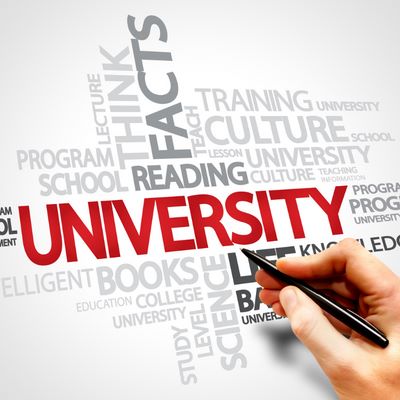Many different factors can lead to a visa application being rejected. A list of reasons
for visa rejection will be given to you. Let’s say you are successful in determining the
reasons the visa was denied. The next step in that situation is to either make the
appropriate corrections or make sure that you don’t make the same mistake in any
future applications. On the other hand, if you are unable to pinpoint what went wrong
and are unclear of your next step, keep trying. The most common grounds for denial
of a student visa are a few.
There are a few ways, nevertheless, to find out the real reason your visa application
was denied. If your application for a Canada student visa was rejected and you do
not have a Canadian PR or are not a Canadian citizen, you can, for example, apply
for GCMS or CAIPS notes through a consultant or agent who is a Canadian citizen
or permanent resident.
The Global Case Management System or the computer-assisted immigration
processing system will provide you with thorough information regarding your visa
application. You should receive these comments in 35 to 40 days. You should also
compare similar services offered in other countries. These tools allow you to get
thorough information about your visa application.
Below are few reasons and solutions that why your student visa gets rejected:
- Shortage of funds
For international academics, financial assistance is crucial—lack of costs or
insufficient finances and paperwork to support overseas studies might result
in visa denial. In order to pursue higher education abroad, you should
therefore apply for grants or loans before requesting a visa.
Solution: Ensure that your funds are under control. In each nation, a specific
sum of money is needed for your account and tuition expense sheet. - Selecting wrong course
The interview for the visa may be impacted by your incapacity to explain why
you choose a particular course. The application may be swiftly rejected if the
student visa interview is underprepared for and the inappropriate course is
selected.
Be specific and clear in your reasoning for choosing any academic subject,
then.
Solution – Choosing the correct course is crucial, but you should be
completely aware of all the requirements and implications for you. In your
situation, it’s critical to feel confident that you are ready for the challenge and
have a solid grasp of what to anticipate.
- Inappropriate Document
This can lead to the denial of your visa application. Your desire to pursue an
education abroad may be severely hampered by missing or forged student
visa papers.
Solution: The problem with your approval is the visa papers. You can never
carry too many paperwork, so make sure you have everything written down
and prepared to turn in when requested. This presents you as a well-
rehearsed, assured interviewee with certain objectives. - Wrong attitude
Your improper or unprofessional approach toward interviewers may be the
most effective troubleshooting tool. As a result, your application for an
academic visa can be declined or delayed.
Solution: Misbehaviour never solves anything; the interviewer is in a position
of authority and has years of expertise; act appropriately, use suitable
vocabulary, and project a respectful body language. Do not act as though they
are your friends! - Poor communication and lack of skills
This is why requests for academic visas are usually turned down. It also
makes it difficult to make a great impression during interviews.
Solution: MOCK INTERVIEW is the answer! Speaking abilities are essential.
Find your weak points—the most important research questions—by doing
practice interviews with yourself and recording your speech. - Academic performance
The visa officers go at a student’s academic history and consistency. Visa
officials review a student’s overall academic record. For approval, receiving
good grades is important, but it’s not everything.
The result of an English language test, such as the TOEFL or IELTS, will be a
key factor in deciding whether a candidate is given a visa. If there are any
discrepancies in your academic history, you will be questioned.
- Letter of Acceptance
At the time of admission, each student shall receive a letter of acceptance
from the Designated Learning Institute (DLI). This acceptance letter from each
international student’s DLI must be brought by the visa officials.
The visa or study permit will be outright rejected if the students miss the
deadline for the acceptance letter. The students must provide a letter of
acceptance and identification that satisfies the fundamental eligibility
standards set forth by the Canadian government. The application form may be
amended to include any supplemental personal documents or declarations.
Solution: Make sure you contact the university and set up these documents
before your interview. - Desire to return to your home country
A temporary visa is one that has an expiration date, such a student visa.
Therefore, the immigration officers will ask if the foreign students plan to go
back home following the course. International students may decide to go to
Canada following the study because there aren’t many job opportunities there.
However, this can result in the denial of a student visa. Therefore, when there
is a low possibility that they will return to their native country, applications are
automatically denied.
Solution: During the visa interview and application process, international
students should express their intention to return home following the course.
Make sure your justifications for going home are sound!
Few tips to ensure your visa does not get rejected
● Always carry yourself in a professional manner. It must adhere to the key’s
rules, for which you have made an application.
● Make sure your answers are pertinent and in keeping with the interviewer’s
questions.
● When discussing your chosen academic location during the student visa
interview, be truthful and courteous.
● Be effective in communicating your desire to enroll in the course, as well as
your prior academic success and other information.
● Be flexible and agile when answering interview questions because anything is
possible.



Leave Your Comment